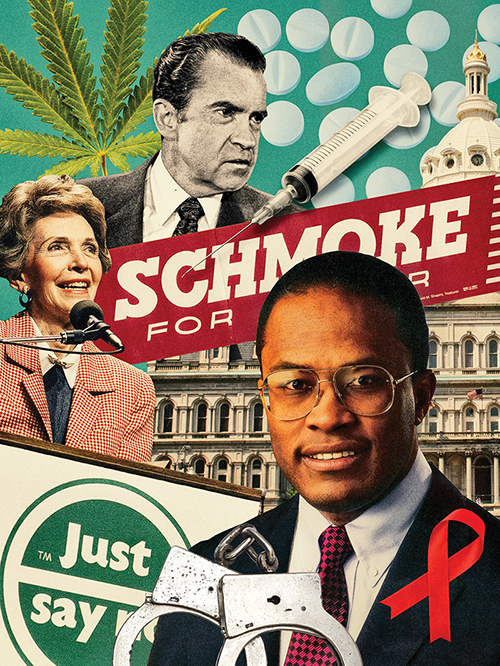The taboo that kept some from outright admitting that current antinarcotics policies have failed has all but disappeared. A recent report by former Brazilian President Crdoso, former Colombian President Gaviria, and former Mexican President Zedillo made precisely this point and an op-ed by the three this week in the WSJ with the headline “The War on Drugs is a Failure” further emphasized it. A Government Accountability Office report from late 2008 states that Plan Colombia’s “drug reduction goals were not fully met,” noting that since 2000 coca cultivation grew 15 percent and coca production 5 percent. Edward Schumacher-Matos pointed out in the Washington Post this week that “Cocaine is still so readily available that its street price is a quarter of what it was in 1981.”
But the drug war has not only failed; it has caused significant harm. The U.S. strategy, which consists of combating drug trafficking with enforcement, is meant to disrupt cartels, with the hope that the raised cost of doing business will dissuade some from the drug trade. Unfortunately, a look at decades of the war on drugs demonstrates that the multi-billion dollar drug market is lucrative enough to dwarf the cost created by enforcement campaigns. Instead, enforcement leads to increased violence among drug cartels and between the drug cartels and enforcement authorities, leading to significant civilian and non-civilian deaths. This explains the tens of thousands that have been killed in Colombia in the past decade and the over 5,000 drug-related deaths in Mexico just last year. The situation in Central America is similarly dire, but underestimated to the point that today UN Assistant Secretary General Carlos Castresana asked this week for urgent help for the region.
Beyond the killings, the drug trade and the way it is handled also erode democratic institutions. This is what happened in Colombia when presidential candidates and members of Congress, as well as police officers and judges, were on the drug traffickers’ pay roll. It is what is happening now in Mexico, where the Juarez Police chief quit this week following threats and where the mayor of Vista Hermosa was killed today. Intimidation, not to mention assassinations, of public officials reduces people’s trust in institutions and weakens their role in society. The growing drug trade and counternarcotics strategy of the last decades has instigated violence and weakened democracies, but has not led to a reduction in drug production or trafficking.
Colombia is seen by some as a lone success story in the drug war, but even though violence has dropped and the drug trade no longer threatens the state’s stability, violence remains high and drugs continue to threaten Colombia’s institutions. A massacre of dozens of indigenous Colombians by the FARC in recent weeks serves as a reminder of the human costs of the drug-fueled war. The developing wiretapping scandal, in which officials from the state’s security service, known as DAS, apparently wiretapped lawmakers, magistrates, and journalists, and sold the information in the black market to the highest bidder, namely guerrillas, paramilitaries, and drug traffickers, is also a reminder of the corrupting effect of drug money. Even in a country that has received over $6 billion from the United States to combat drug trafficking in the past decade, the power of a multi-billion dollar black market cannot be stopped.
The recent criticism of the drug war has been accompanied by some policy proposals. The report by the three presidents recommends working around these priorities: “Reduce the harm caused by drugs, decrease drug consumption through education, and aggressively combat organized crime.” They also ” propose the careful evaluation, from a public-health standpoint, of the possibility of decriminalizing the possession of cannabis for personal use.” A recent Huffington Post column makes the case for legalization. Others have focused on more specific recommendations such as preventing weapons from crossing the border south into Mexico or targeting drug funds going south.
The problem is some of these proposals such as decriminalizing or legalizing drugs seem unattainable on a political level in the United States. The others, such as targeting guns and funds, would create complications for drug cartels, but would not significantly reduce the negative effects of the drug war in the long run.
At a time in which the United States cannot continue to throw its money into a failed strategy and with a country next door experiencing the human pain and eroding effect of drug trafficking, the Obama administration, as busy as it may be, will have to make some calls on how it will deal with drug trafficking. Don’t we have some creative policy proposals to offer? There seems to be a void in terms of realistic policy proposals that could have a significant impact. Any thoughts would be much appreciated.

Reply